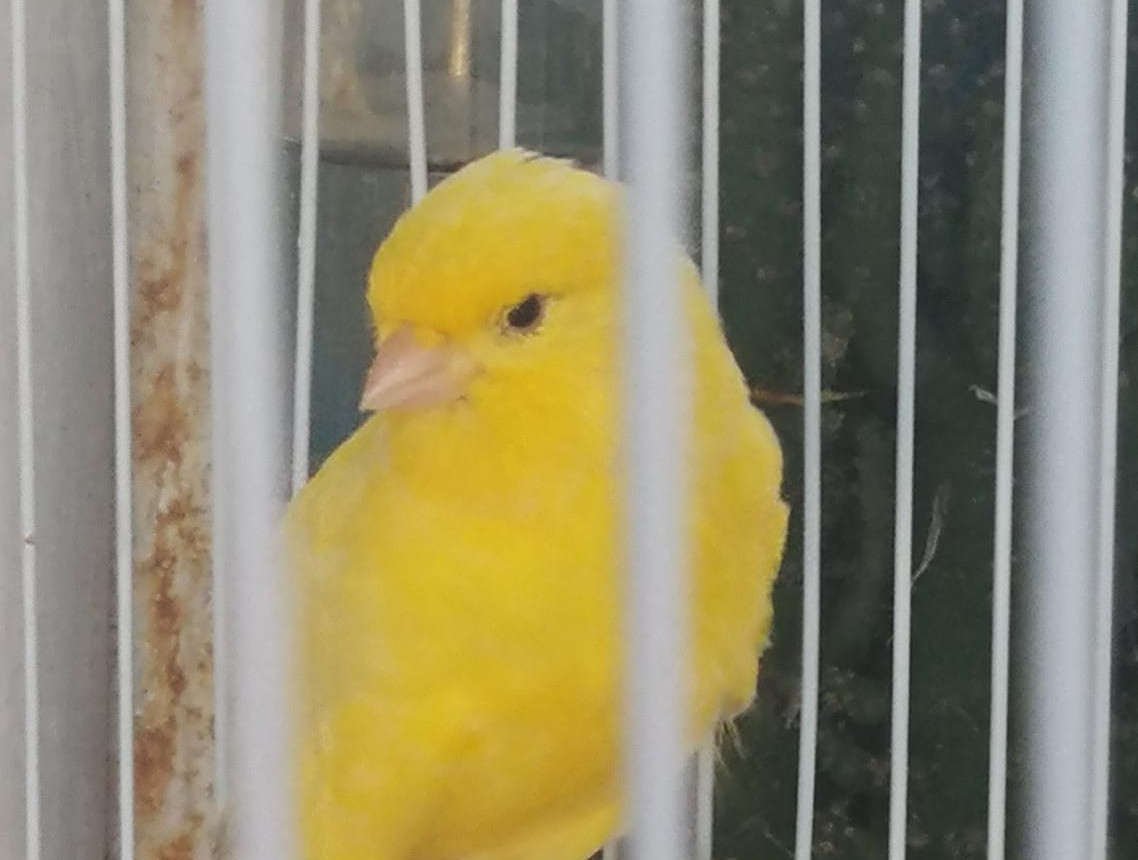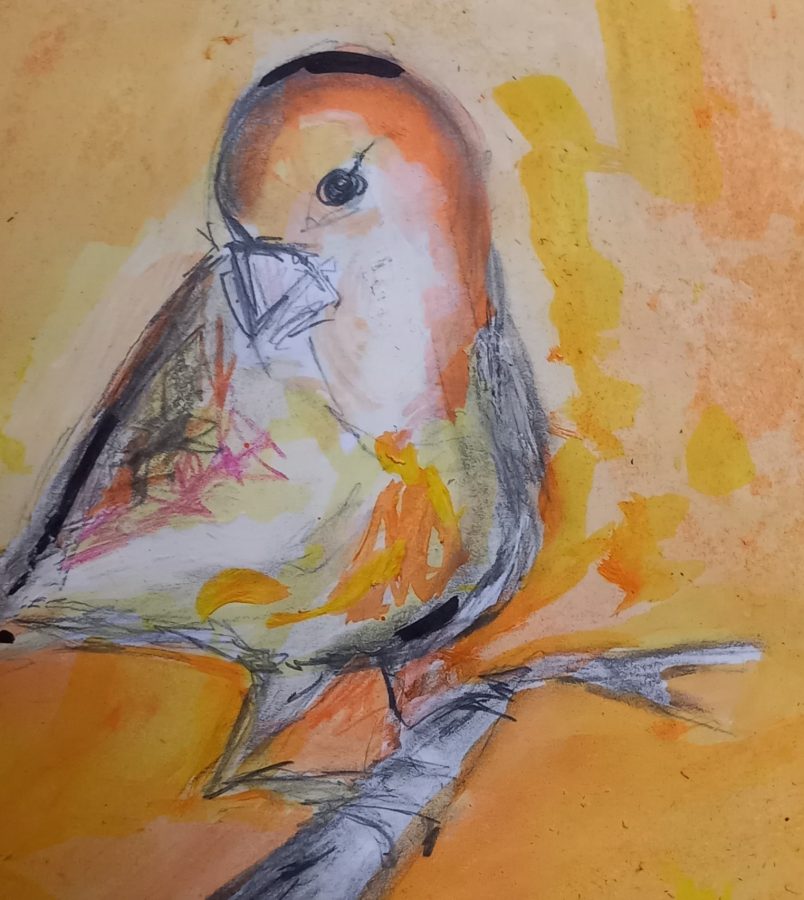In Crete’s villages, sound is everywhere — goat bells on the hills, cicadas screaming in the plane trees, the hum of scooters. But listen closely at dawn or in the quiet of an afternoon, and you will hear something finer, almost delicate: the song of canaries.
They are in almost every other household. Cages hang from balconies like lanterns of song, or rest in courtyards beside potted basil. The birds are not decorations; they are companions. Their voices brighten kitchens, soften stone walls, and carry memories across generations. Children fall asleep with their notes in their ears, and women water flowers while their birds trill from the window. The song is part of life, like bread or olive oil — ordinary, necessary, and irreplaceable.

I know this sound not as an observer but as someone who lives inside it. My canary Gim sings to me every day. His cage sits close to my bed, close enough that his presence is never far from my eyes or ears. Each morning, I climb carefully onto a small cabinet to change his water. It takes precision: one wrong move, and the bowl will not fit back into its place. He waits for me to finish, hopping with a quick tsup-tsup sound that feels like approval. Then I tuck a leaf of cabbage through the bars — his treat, which he tears apart with a joy that makes me smile.
Gim is more than a bird in a cage. He is attentive, clever, sometimes demanding. If I leave the room, he calls for me, a sharp little cry that refuses to be ignored. If I sit back at my desk, he calms instantly, reassured by my presence. He knows my rhythm, and I know his. There is no distance between us; his voice and my life are stitched together.
Cretan families have always kept canaries this way, not as showpieces but as presences — voices to fill the air when the house grows too quiet. The cicadas may dominate the summer fields with their relentless music, but it is the canary who rules the home. His notes are brighter, clearer, more personal. Where cicadas are a chorus of the island, the canary is a single poem sung for you alone.

Gim’s song threads into my days the way his ancestors’ songs threaded into countless Cretan homes before mine. When he sings, I hear not only him, but also the invisible choir of little birds scattered across the villages — each one outspeaking the cicadas, each one holding the heart of a house.
And that is why the tradition endures: because in Crete, even the smallest bird can carry a household, and even the noisiest island leaves room for a song that refuses to be drowned.